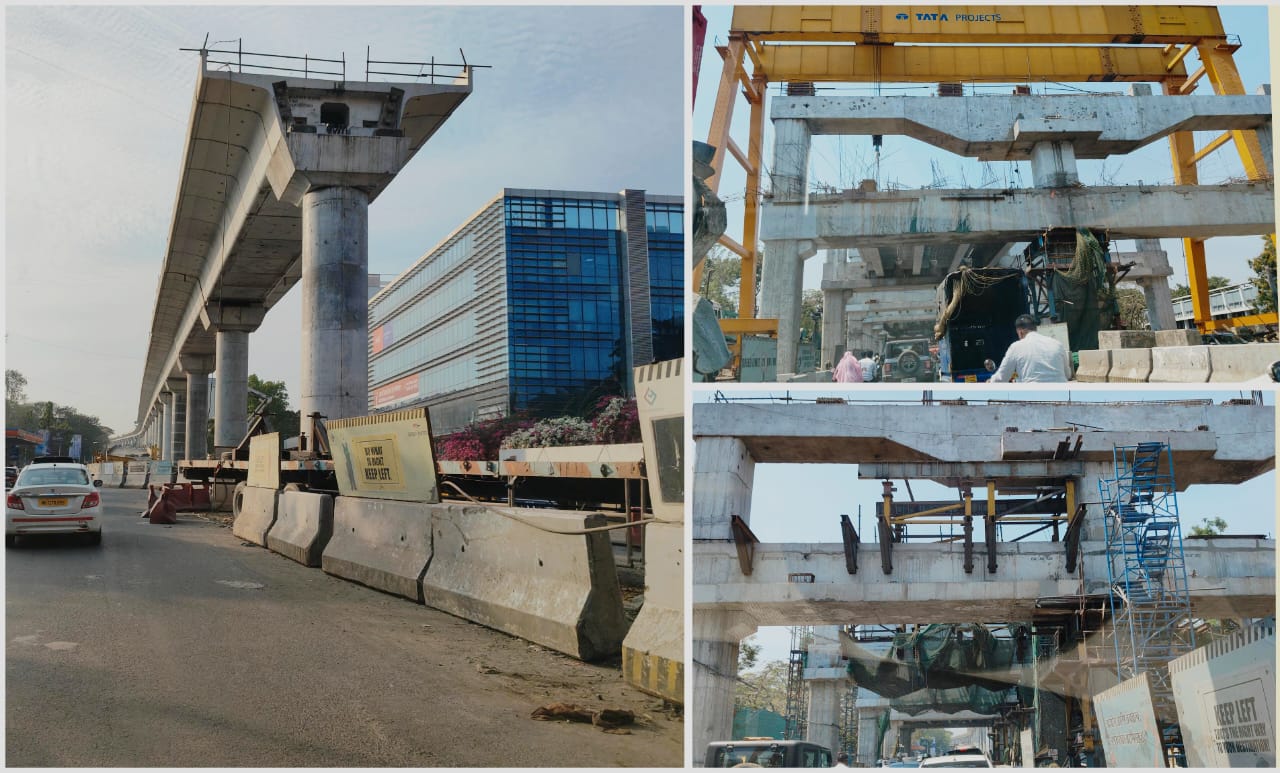Commuters and stakeholders in Pune’s western corridor will have to wait longer for seamless metro connectivity as the much-delayed Hinjawadi-Shivajinagar Metro line is now unlikely to be operational before March 2026.
The 23-km elevated corridor, which was originally slated for completion by March 2025, has now slipped past at least three official deadlines, with project authorities citing a mix of bureaucratic red tape and infrastructure hurdles.The Pune Metropolitan Region Development Authority (PMRDA), which is overseeing the metro line’s implementation through a public-private partnership model, has confirmed that the concessionaire has sought a formal extension. The proposal is under consideration and awaits clearance from the executive committee led by the state finance department.Despite an overall completion rate of over 85%, critical last-mile challenges persist—particularly along Ganeshkhind Road, a high-density traffic zone that has complicated barricading permissions and utility diversions. The stretch is crucial as it lies close to administrative quarters and arterial traffic routes, making project execution highly sensitive and tightly monitored.
This metro line, considered vital for decongesting Pune’s IT hub in Hinjawadi, has already seen considerable cost and timeline escalations. The route connects Rajiv Gandhi Infotech Park with Shivajinagar, one of the busiest civic and commercial nodes, and is expected to serve thousands of daily commuters, many of whom rely on private vehicles due to poor last-mile transport access.A senior PMRDA official said that the intention is to open all 23 stations in one go, rather than in a phased manner. While this move aims to maximise impact and avoid piecemeal operations, it adds pressure on the concessionaire to complete all pending works, including safety trials and integration with feeder systems.The delay has not only extended the wait for Pune’s workforce but also underscores systemic gaps in urban project execution.
The twin goals of sustainable mobility and reduced vehicular emissions hinge on the timely launch of mass transit systems like this one. With Pune’s air quality and road congestion worsening year after year, transport planners argue that any setback in metro timelines could undermine broader environmental targets and strain public faith in infrastructure commitments.In parallel, the double-decker flyover infrastructure near University Chowk—which shares integration with the metro corridor—is reportedly 80% complete. Authorities say that the Aundh-facing ramps will open by June 1, offering partial traffic relief. However, these interim measures fall short of the transformative impact the full metro service promises.
For a city aspiring to be a model of smart, green urbanisation, the repeated postponement of the Hinjawadi Metro raises important questions around project planning, inter-agency coordination, and public accountability. The metro line remains a critical test case for Pune’s urban future—balancing speed, sustainability, and scale.
Also Read : Pune Residents to Get Property Tax Bills from May 1
Pune Hinjawadi Metro Delayed Yet Again


